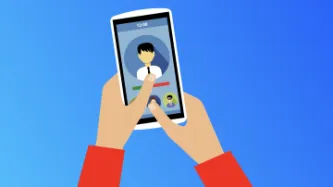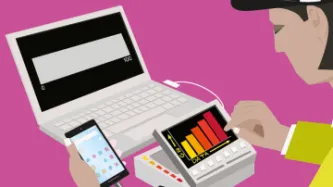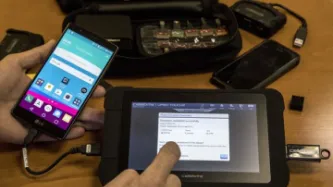Search
Content type: News & Analysis
As Amnesty International and Forbidden Stories continue to publish crucial information about the potential targets of NSO Group’s spyware, we know this much already: something needs to be done.
But what exactly needs to be done is less obvious. Even though this is not the first time that the world has learned about major abuses by the surveillance industry (indeed, it’s not even the first time this month), it’s difficult to know what needs to change.
So how can the proliferation and use of…
Content type: News & Analysis
It is difficult to imagine a more intrusive invasion of privacy than the search of a personal or home computer ... when connected to the internet, computers serve as portals to an almost infinite amount of information that is shared between different users and is stored almost anywhere in the world.
R v Vu 2013 SCC 60, [2013] 3 SCR 657 at [40] and [41].
The controversial Police Crime Sentencing and Courts Bill includes provision for extracting data from electronic devices.
The Bill…
Content type: Explainer
Where are my images, contacts and documents stored?
You generate data every time you use your phone e.g. you generate data when you take photographs or record videos, when you create or edit notes and documents on the go, and when you add new names and numbers to your contacts directory.
All this data is created through dedicated apps - your camera and photo apps, social media apps, notes apps, and your contacts app are just some examples.
It is important to note that when you create any…
Content type: Explainer
Where are my communications stored?
Text messages/phone calls: Traditional cellphone communications happen over the cellular network. You usually access those with the text message and phone call apps that are provided as standard on your phone. While phone calls aren’t stored anywhere, text messages are stored locally on your and the recipient’s devices. They might also be temporarily stored by the network provider.
Messaging apps: Messaging platforms enable fairly secure communication…
Content type: Video
You’re a witness or a victim or a suspect of a crime; or even just travelling going on holiday. Officials demand your phone, then disappear with it. What happened to your phone? What happened to your data? What will happen to you?
We all generate vast amounts of data using our mobile phones - more than most of us are aware of - and that data has become increasingly attractive to law enforcement agencies around the world, enabled by ‘extraction technologies’ supplied by companies like…
Content type: Long Read
In this piece we examine mobile phone extraction, relying on publicly available information and Privacy International’s experience from conducting mobile phone extraction using a Cellebrite UFED Touch 2. We welcome input from experts in the field. This is a rapidly developing area. Just as new security features are announced for phones, so too new methods to extract data are found.
[All references can be found in the pdf version below.]
General explanation of mobile phone…
Content type: News & Analysis
Taylor Swift may be tracking you, particularly if you were at her Rose Bowl show in May.
According to an article published by Vanity Fair, at Swift’s concert at the California stadium, fans were drawn to a kiosk where they could watch rehearsal clips. At the same time – and without their knowledge - facial-recognition cameras were scanning them, and the scans were then reportedly sent to a “command post” in Nashville, where they were compared to photos of people who are known…
Content type: News & Analysis
This op-ed originally appeared in the Huffington Post.
As technologies used by the police race ahead of outdated legislation, we are left vulnerable to potential for misuse and abuse of our data
The vast quantities of data we generate every minute of the day and how it can be exploited is challenging democratic and societal norms. The use by UK police forces of technologies that provide access to data on our phones, which document everything we do, everywhere we go, everyone we interact with…







